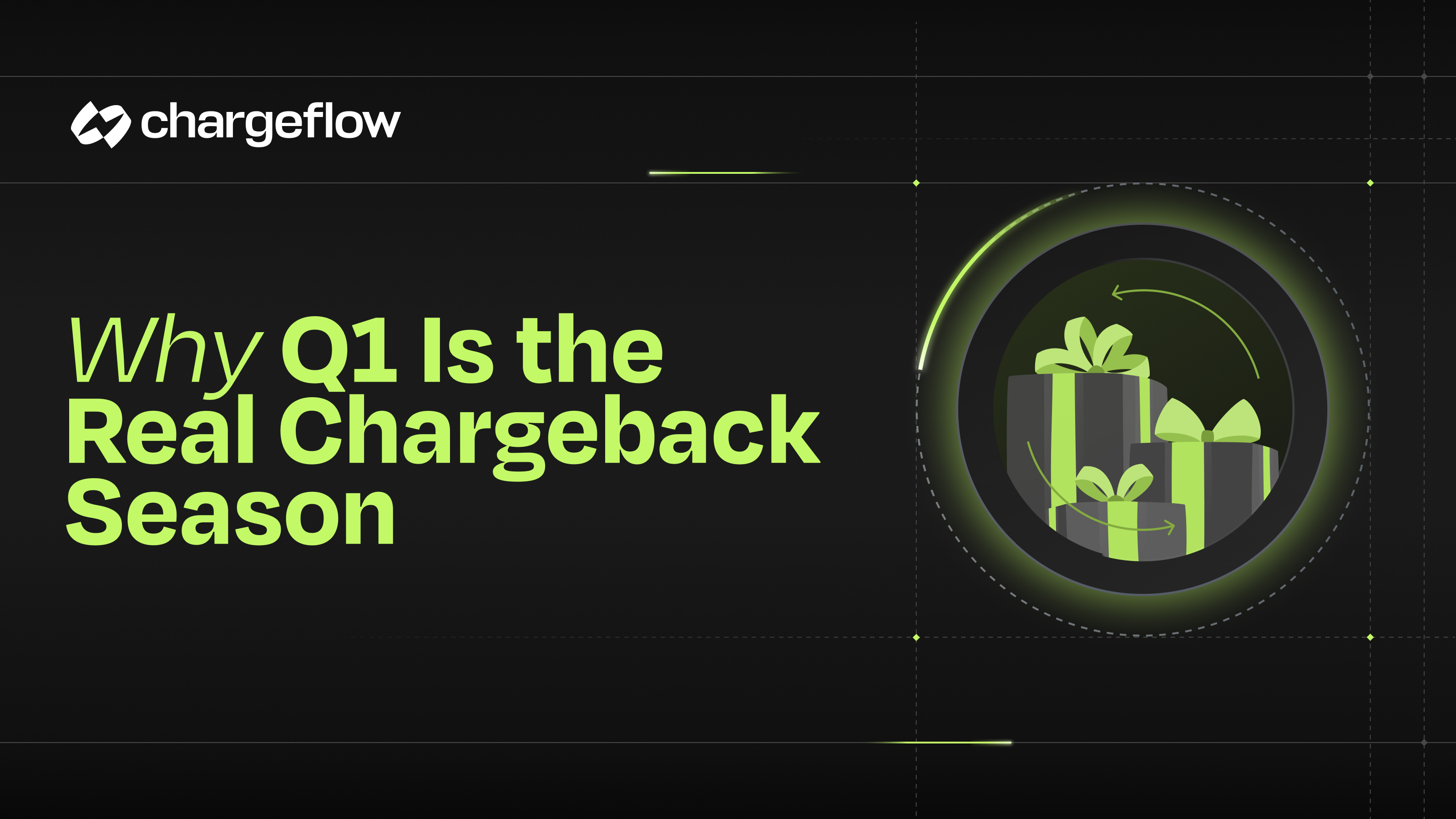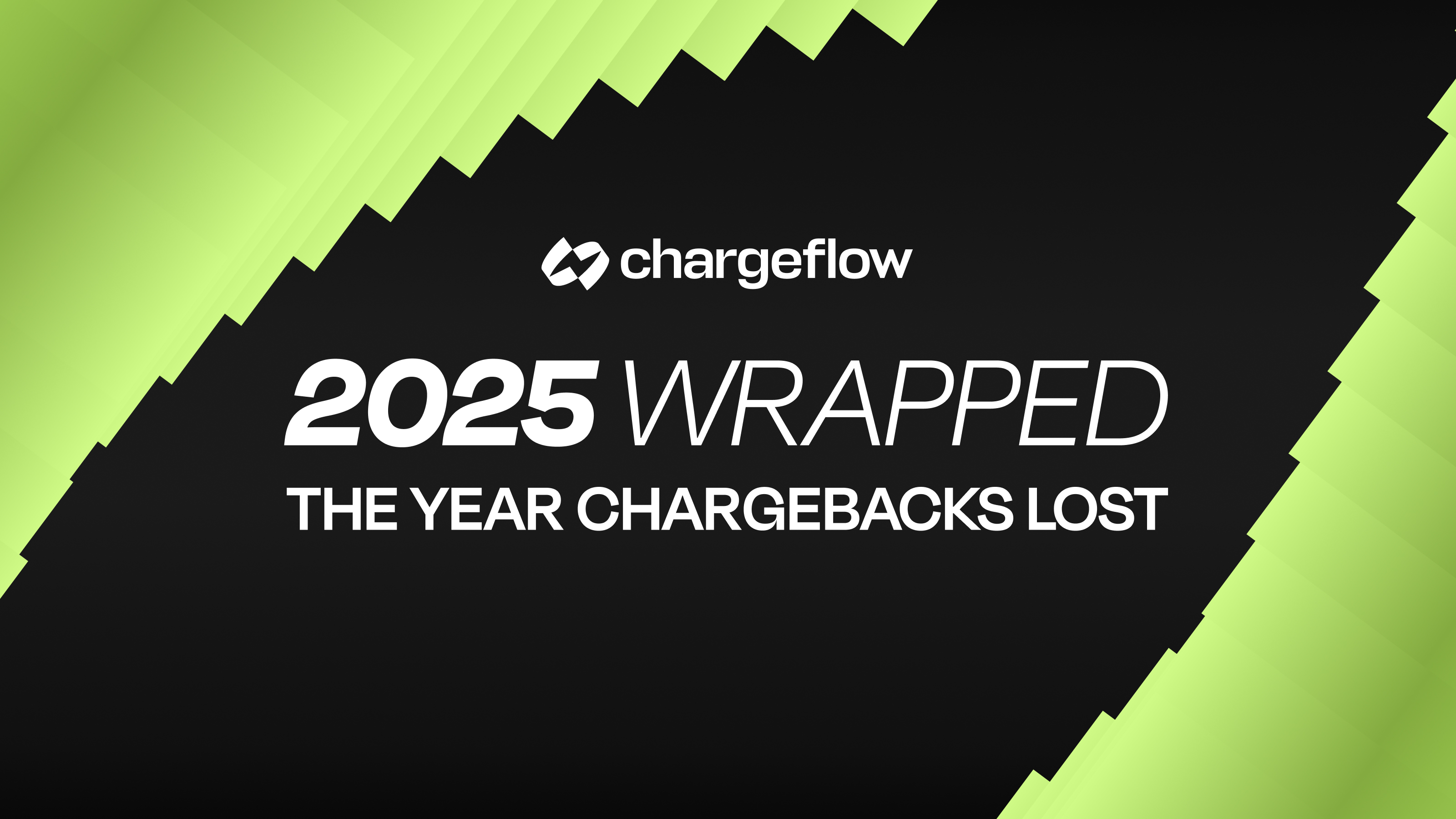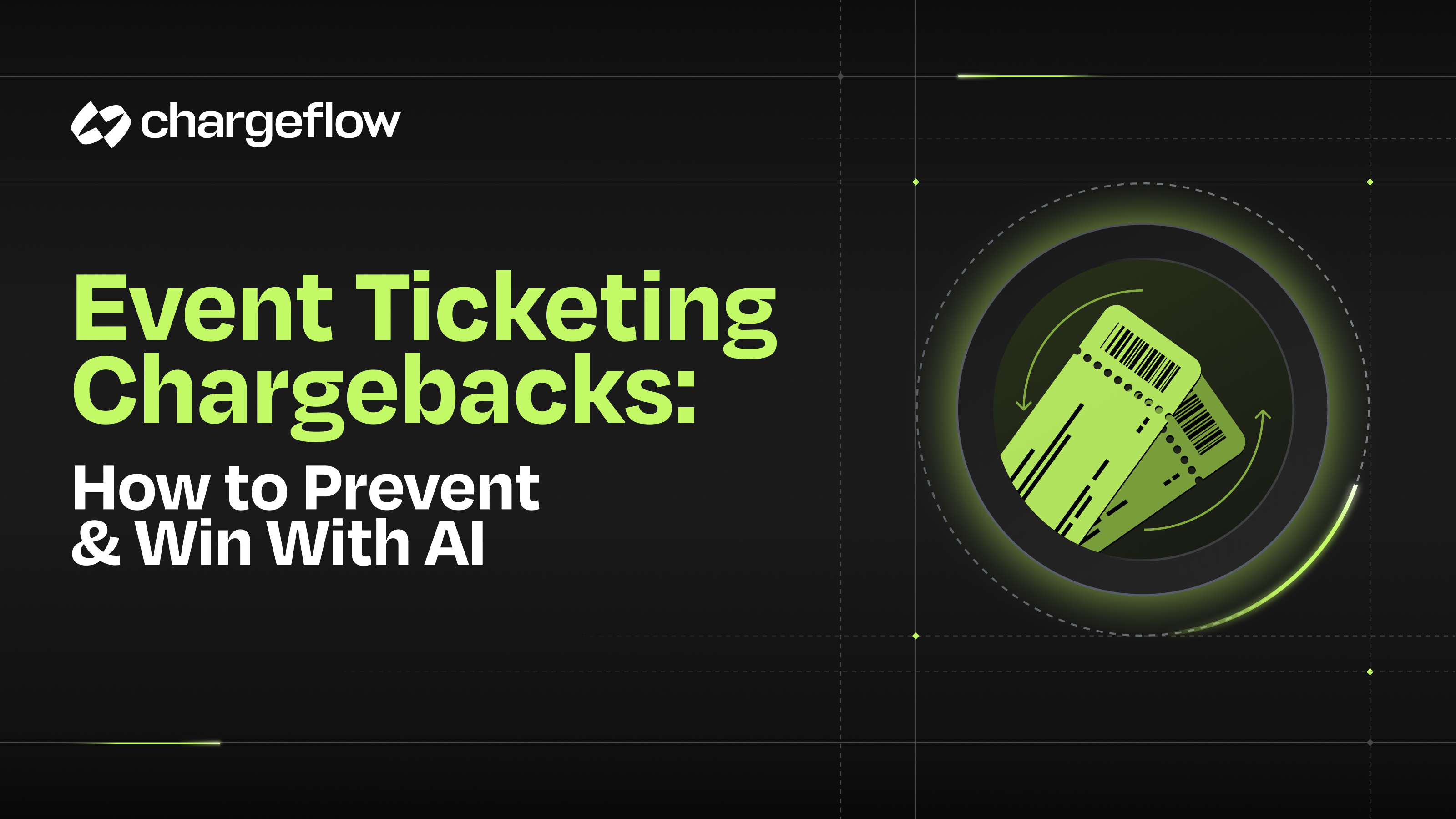MasterCard Reason Code 4870: Chip Liability Shift Chargeback - A Merchant Guide

Chargebacks?
No longer your problem.
Recover 4x more chargebacks and prevent up to 90% of incoming ones, powered by AI and a global network of 15,000 merchants.
Don't let MasterCard Reason Code 4870 catch you off guard! Learn about chip liability shift chargebacks and how to avoid them.
MasterCard Reason Code 4870 is a significant concern for merchants who accept credit card payments. It is a chargeback that occurs when a cardholder disputes a transaction and alleges that the merchant failed to use EMV-compliant equipment to process the payment.
The chargeback is initiated under the EMV Liability Shift policy, which holds merchants responsible for fraudulent transactions due to their failure to use EMV-compliant equipment.
Understanding it and the EMV Liability Shift is essential for merchants who want to avoid chargebacks and protect their businesses from financial losses.
In this guide, we will provide a comprehensive overview of MasterCard Reason Code 4870, explain how it works, and offer practical tips on how to prevent and respond to chargebacks.
We will also cover common questions merchants may have about this chargeback and offer insights into MasterCard's chargeback management guidelines.
Whether you are a new or experienced merchant, it is critical to stay up-to-date with the latest chargeback regulations and guidelines.
Doing so can protect your business from financial losses, maintain a positive reputation, and ensure customer satisfaction. So, let's dive into MasterCard Reason Code 4870 and learn how to protect your business from chargebacks.
What is the Chip Liability Shift?
The Chip Liability Shift is a term used to describe a change in the way liability for fraudulent transactions is assigned in the credit card industry. This shift was introduced by major credit card companies, including Mastercard, as a way to encourage merchants to adopt new, more secure technology for processing credit card transactions.
Before the Chip Liability Shift, if a fraudulent transaction occurred using a credit card that had a magnetic stripe, the issuing bank would typically be responsible for covering the costs associated with the fraud.
However, with the introduction of EMV chip technology, the liability for fraudulent transactions shifted from the issuing bank to the merchant if the merchant was not using an EMV-compliant terminal.
EMV stands for Europay, Mastercard, and Visa, the companies that developed the chip technology. The EMV chip is a small microchip embedded in credit and debit cards that generates a unique code for each transaction, making it much more difficult for fraudsters to steal and reuse card information.
The EMV Liability Shift went into effect in October 2015, and it means that if a merchant accepts a fraudulent transaction using a credit or debit card that has an EMV chip, but the merchant's terminal is not EMV-compliant, the merchant will be liable for the costs associated with the fraud.
It includes the cost of the goods or services purchased, any chargeback fees imposed by the credit card company, and any fines or penalties associated with non-compliance.
The Chip Liability Shift was designed to encourage merchants to adopt new, more secure technology for processing credit card transactions, and it has been largely successful in doing so.
Merchants who have upgraded their terminals to accept EMV chip cards have seen a reduction in fraudulent transactions and chargebacks, and they are protected from liability in the event that a fraudulent transaction does occur.
MasterCard Reason Code 4870 Explained
It is used when a cardholder disputes a transaction because the merchant did not use EMV-compliant equipment during the transaction. EMV stands for Europay, MasterCard, and Visa, and it is a global standard for credit card payments.
The purpose of the EMV standard is to provide a more secure payment experience by using chip technology instead of magnetic stripe.
When is MasterCard Reason Code 4870 applied?
Code 4870 is applied when a cardholder disputes a transaction because the merchant did not use EMV-compliant equipment. If a transaction is disputed with this reason code, it means that the cardholder believes the merchant is responsible for the fraud that occurred during the transaction.
What are the consequences of a MasterCard Reason Code 4870 chargeback?
If a merchant receives a chargeback with Reason Code 4870, it means that they are liable for the fraudulent transaction. This means that the merchant will lose the funds from the transaction, as well as potentially incur additional fees and penalties. If a merchant receives too many chargebacks, they may also face account closures and other restrictions from MasterCard.
Common Causes of MasterCard Reason Code 4870 Chargebacks
Here are the common causes of MasterCard Reason Code 4870 chargebacks:
I. Failure to use EMV-compliant equipment
One of the most common causes of MasterCard Reason Code 4870 chargebacks is the failure to use EMV-compliant equipment. EMV technology is a secure chip-and-pin payment system that is designed to prevent fraudulent transactions.
The liability for fraudulent transactions used to fall on the banks or credit card companies. However, with the EMV Liability Shift, the liability for fraudulent transactions now falls on the party that is not using EMV-compliant equipment.
If a merchant fails to use EMV-compliant equipment, they could be liable for fraudulent transactions made using non-compliant payment methods. It is essential to ensure that your payment processing equipment is EMV-compliant to prevent this type of chargeback.
II. Misuse of EMV technology
Another common cause of MasterCard Reason Code 4870 chargebacks is the misuse of EMV technology. EMV technology is a secure payment method that requires the customer to insert their chip card into a chip reader and enter their PIN. However, if the merchant or the customer does not use the chip correctly, it can result in a chargeback.
For example, if a merchant swipes a chip card instead of inserting it into the chip reader, it could result in a chargeback. Similarly, if the customer does not enter their PIN when prompted, it could also translate into a chargeback. It is essential to train your employees on the proper use of EMV technology to prevent this type of chargeback.
III. Incorrect processing procedures
Lastly, incorrect processing procedures can also lead to MasterCard Reason Code 4870 chargebacks. Merchants must follow the correct processing procedures when accepting payments to avoid chargebacks.
For example, if a merchant accepts payment for a transaction that is not authorized by the cardholder, it could result in a chargeback. Similarly, if the merchant does not follow the correct procedures when processing a refund, it could also result in a chargeback. It is essential to train your employees on the proper processing procedures to prevent this type of chargeback.
How to Prevent MasterCard Reason Code 4870 Chargebacks?
Here are some tips on how to prevent MasterCard Reason Code 4870 chargebacks:
1. Use EMV-Compliant Equipment
The first step to preventing MasterCard Reason Code 4870 chargebacks is to use EMV-compliant equipment. This equipment is designed to read the chip on a customer's card, which is a more secure way of processing transactions than the traditional swipe method. If you are still using swipe-only equipment, it is time to upgrade to EMV-compliant terminals.
2. Train Employees on Proper Processing Procedures
Even if you have EMV-compliant equipment, it is essential to train your employees on proper processing procedures. They need to know how to insert the chip card into the terminal, how to prompt the customer to enter their PIN, and how to handle declined transactions. If your employees are not trained properly, they may inadvertently cause a MasterCard Reason Code 4870 chargeback.
3. Verify Cardholder Identification
One way to prevent fraudulent transactions is to verify the cardholder's identification. This can be done by asking to see the customer's ID or by comparing the name on the card to the name on the receipt. By verifying the cardholder's identity, you can reduce the risk of chargebacks due to fraud.
4. Address Customer Complaints Promptly
Another way to prevent chargebacks is to address customer complaints promptly. If a customer contacts you with a concern about their transaction, take it seriously and investigate the issue. By resolving customer complaints quickly, you can prevent them from escalating to chargebacks.
Responding to MasterCard Reason Code 4870 Chargebacks
If you're a merchant who has received a MasterCard Reason Code 4870 chargeback, it's important to respond promptly and effectively to avoid financial losses and damage to your reputation. In this section, we will discuss how to respond to this chargebacks and provide guidelines to help you manage the chargeback process.
Gather Relevant Evidence
The first step in responding to a MasterCard Reason Code 4870 chargeback is to gather all relevant evidence. This includes any documentation related to the transaction, such as receipts, invoices, and shipping information. You should also obtain any information related to the cardholder, such as their name, address, and contact information.
Prepare a Rebuttal Letter
Once you have gathered all relevant evidence, you should prepare a rebuttal letter to dispute the chargeback. The letter should include a clear explanation of why the chargeback is invalid and why the cardholder is responsible for the charge. You should also include any evidence that supports your position, such as receipts or shipping information.
Submit the Rebuttal Letter within the Required Timeframe
It's important to submit the rebuttal letter within the required timeframe, which is typically within 14 days of receiving the chargeback notification. Failure to submit the rebuttal letter on time can result in a loss of chargeback dispute and financial losses for your business.
MasterCard Chargeback Management Guidelines
MasterCard provides chargeback management guidelines to help merchants manage the chargeback process effectively. These guidelines include:
- Respond promptly to chargebacks and disputes to avoid financial losses.
- Keep track of chargebacks and disputes to identify trends and take appropriate action.
- Ensure that your employees are properly trained on processing procedures to minimize chargebacks.
- Verify cardholder identification to prevent fraudulent transactions.
- Address customer complaints promptly to prevent chargebacks and improve customer satisfaction.
Final Thoughts
MasterCard Reason Code 4870, also known as the Chip Liability Shift Chargeback, can have serious consequences for merchants who are not compliant with EMV standards. As a merchant, it is essential to understand the implications of this chargeback reason code and take the necessary steps to prevent it from occurring.
By using EMV-compliant equipment, training employees on proper processing procedures, and verifying cardholder identification, merchants can significantly reduce the risk of receiving a MasterCard Reason Code 4870 chargeback. Additionally, addressing customer complaints promptly can help resolve any issues before they escalate to a chargeback.
If a merchant does receive a Code 4870 chargeback, it is essential to gather all relevant evidence and prepare a strong rebuttal letter to dispute the chargeback. Responding promptly to chargebacks and disputes is also crucial to maintaining a good standing with MasterCard and avoiding any negative consequences.
To conclude, understanding Reason Code is crucial for merchants who want to avoid chargebacks and maintain good standing with MasterCard. By taking necessary precautions and responding promptly to chargebacks and disputes, merchants can protect their businesses and ensure long-term success in the industry.

Chargebacks?
No longer your problem.
Recover 4x more chargebacks and prevent up to 90% of incoming ones, powered by AI and a global network of 15,000 merchants.




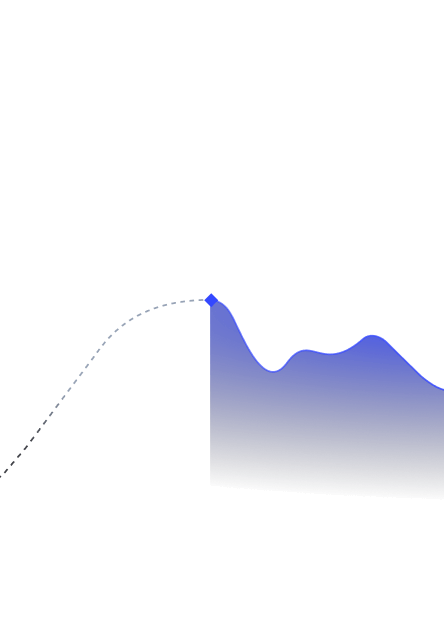
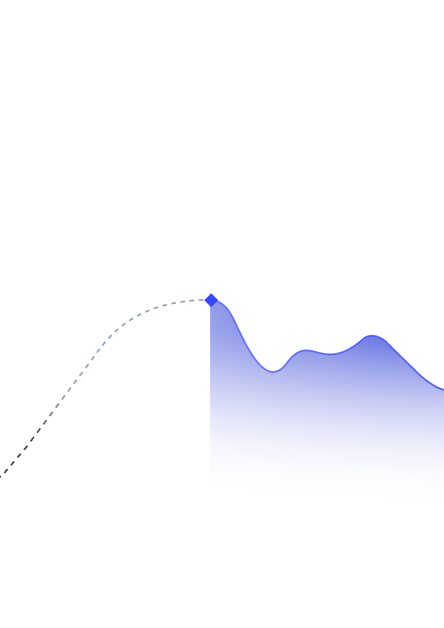










































.png)
